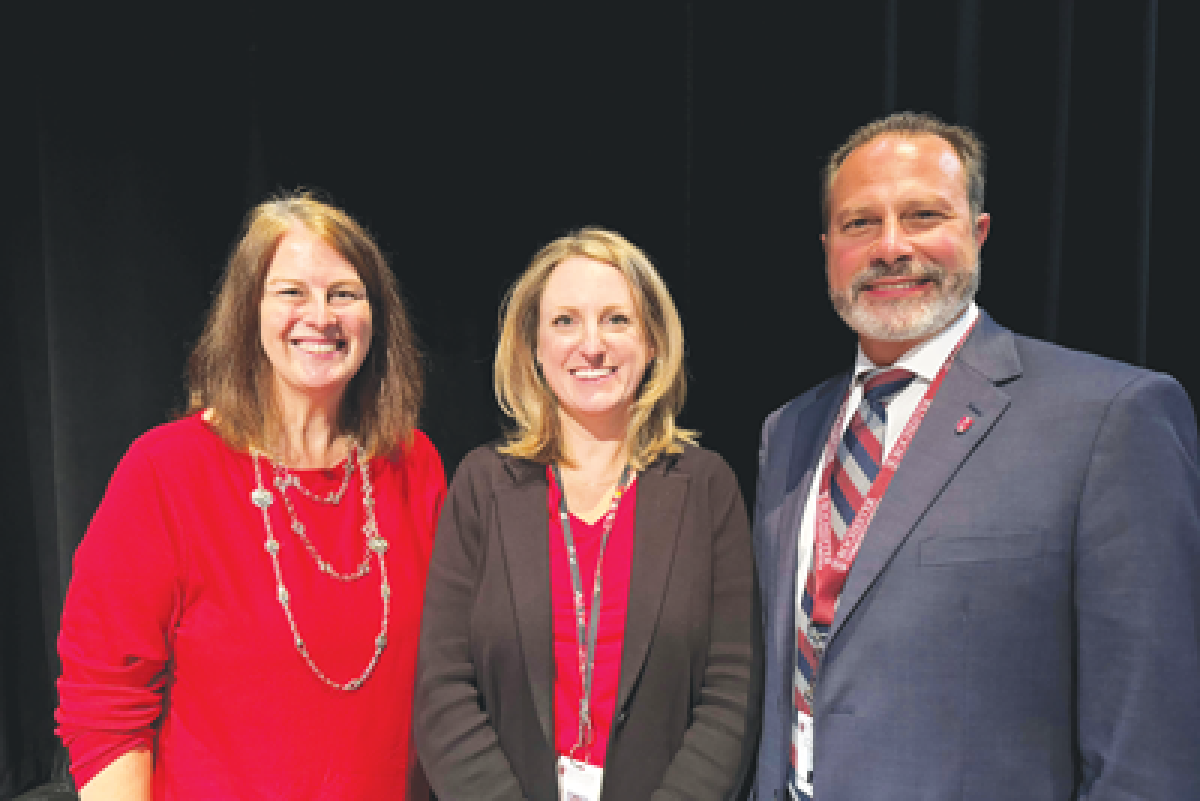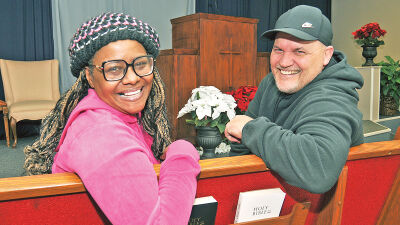ROCHESTER/ROCHESTER HILLS/OAKLAND TOWNSHIP — After seven months of negotiation, the Rochester Community Schools Board of Education and the district’s teachers union have reached an agreement on a three-year contract.
The bargaining teams participated in 21 sessions and spent more than 120 hours together developing the final agreement, which runs Sept. 3, 2024-June 30, 2027. The former labor contract covered Feb. 1, 2022, through June 30, 2024.
“As shortages in the workforce continue to challenge many industries, I believe this long-term contract will prove pivotal in providing increased stability for our organization,” RCS Superintendent Nicholas Russo said in a statement.
The new contract was ratified by Rochester Education Association teachers’ union members Aug. 29 and was approved 5-2 at the Sept. 3 RCS Board of Education meeting — with Trustees Andrew Weaver and Carol Beth Litkouhi dissenting.
Through the agreement, the district will invest an additional $33 million in RCS teachers over the next three years. The contract states the district will reduce the salary step schedule from 18 to 15 steps; increase longevity pay; and increase teachers’ base salary by 3% in the first year, 3% in the second year, and $2,000 in the third year.
REA President Elizabeth Schroeck said she’s proud of the collaboration and consensus building that the teams put at the center of the bargaining process.
“This contract provides teachers with much deserved raises. It also provides new parameters for evaluations and teacher protection that allow teachers to focus on what they do best, providing RCS students an excellent education,” Schroeck said in a statement.
Other contract details include language on what district officials said were “formerly prohibited subjects of bargaining,” such as teacher evaluations, layoffs and recalls, teacher placement, teacher rights, and more.
Although Litkouhi said she’s “really grateful” that the district managed to boost the salaries of the lower- and middle-tier teachers “to be competitive with other districts and to recruit good teachers,” she cited concerns with the contract’s “academic freedom” clause in the “teacher rights” section.
The academic freedom clause states, in part, that “no limitation shall be placed upon study, investigation, presentation and interpretation of facts and ideas concerning humanity, human society, and the physical and biological world and other branches of learning.”
“I think that it’s detrimental to building trust with parents and teachers,” Litkouhi said. “Just a couple months ago, parents were voicing concerns about gender ideology books being read to their elementary school students without their knowledge or permission. They mentioned books like ‘Call Me Max,’ or ‘My Shadow is Pink,’ ‘My Shadow is Purple.’ … It’s just crazy to me that this came out just a couple of months later, with this academic freedom clause, which specifically states that there should be no limits on the presentation of ideas regarding humanity, society and the world. I just think that opens the door for teachers to introduce their personal or political views at their discretion — potentially without parents’ knowledge. I don’t think most teachers would abuse something like that, but it protects those who do push the boundaries, which puts an unfair cloud of suspicion over everyone.”
Trustee Jayson Blake, on the other hand, said the contract clearly states teachers have to exercise such freedom “within the framework of the curriculum, administrative directives and board policies” and that it’s “subject only to accepted standards of educational responsibilities and applicable laws, and the realization that teaching in an elementary or secondary school places special responsibility on the district and its educators to carefully consider the maturity level of the student and the special circumstances that surround the teacher/learning relationship.”
“There are a number of provisions in here that are just being ignored because I guess there’s this fear that the teachers are on this mission to teach children things that are inappropriate. … I don’t believe that. I trust the teachers,” said Blake.
Weaver said one of his issues with the contract is the language stating that any recording in the classroom can only be made with a teacher’s permission. He also said language in the contract is vague and leaves the district open to potential litigation.
RCS parent Catherine Agarwal said the contract creates “a significant barrier between parents and the classroom.”
“As parents, we have always been assured that our involvement in our children’s education is not only welcomed, but essential. However, this new agreement threatens to undermine that principle in ways that are both unprecedented and alarming,” she said. “By allowing teachers to withhold classroom information from the parent, this agreement fundamentally shifts the balance of power away from parents and toward an unchecked academic freedom for teachers. This is not about stifling creativity or censoring education. It’s about ensuring parents are not left in the dark about what their children are being taught,” she said.
Agarwal took offense to contract language requiring any parent or guardian who wants to observe a class to submit a written request five days ahead of time and that the language states they must be accompanied by a building administrator. She argued that the requirements add “another layer of distance” between parents and their children’s education.
“This kind of restriction not only discourages parental involvement but also sends a message that our presence in the educational process is unwelcome, or even suspect. Michigan school code clearly states it is the natural fundamental right of parents and legal guardians to determine and direct the care, teaching and education of their children, yet this contract, as it stands right now, seems to disregard that right, placing teachers’ autonomy above the cooperative relationship that should exist between schools and families. … Parental involvement is not just a nicety, it’s a cornerstone of a healthy functioning educational system,” she said. “Any contract that diminishes our role in our children’s education should be approached with the utmost of caution.”
Lila Scheckelhoff, a parent and teacher in the district, said academic freedom allowed her to collaborate with the parents in her second grade classroom to educate the class about a disease one of her students was facing. She said it allowed her to teach kids “how to not be afraid, but how to be a good, loving and supportive friend.”
“We are not trying to teach your children, or my children, or anyone’s children about topics that are meant to be taught at home. We are teaching them social and emotional learning. We are teaching them diversity, equity and inclusion — and that includes them, no matter what your religion is, or what your family looks like.”
Scheckelhoff said the topics that are made for home will always be left for home.
“Our hearts drove us to be teachers. I didn’t change careers from a corporate six-figure job to make $40,000 a year because I wanted to do the job of a parent. I did it because your kids are my kids. I love your kids like I love my kids — that is the why, that is the value in that clause. That is the heart of every teacher here,” she said during the meeting.
Ashleigh Dubie, a third teacher in the district, said the pay increases in the contract will help her stay in the RCS district.
“For those of us toward the bottom of the pay scale, this contract represents a sense of financial relief,” she said. “Whether we use that additional money toward starting a family, paying off large student loans or being able to buy brand-name groceries rather than only purchasing store brand — that additional money matters a lot. … I am grateful for both sides of the negotiating table for coming to an agreement which helps teachers, which will ultimately help students, which then, in turn, makes the world just a little bit of a better place.”
A copy of the REA master agreement is available on the RCS website at www.rochester.k12.mi.us.
 Publication select ▼
Publication select ▼


















